Preschool teachers and homeschooling parents, this one’s for you! Looking for effective ways to introduce young minds to math? This post about preschool math skills is for you!
A strong foundation in math is crucial for future success. By fostering these core concepts in preschool, we equip children with the tools they need to thrive in mathematics and other STEM fields.
Here, we’ll take a deep dive into the development of preschool math skills and provide engaging activities to make learning not only enjoyable but also effective.
It is my hope that you take away a greater understanding of how and why we teach particular math skills to preschoolers, as well as a collection of preschool math activities that you can’t wait to share with your kiddos!

Research shows preschool is a critical window for developing early math competency.
Children who enter kindergarten with strong math skills tend to grasp new mathematical concepts easily. They are also more likely to have a positive attitude toward math overall. That’s why focusing on building preschool math skills through fun, hands-on activities during these formative years is so important.
Similar to teaching literacy concepts, math lessons for preschoolers should be explicit and systematic.
I have developed a math curriculum for preschoolers that is both of these things…and also hands on and of course…FUN! Using a systematic curriculum like this helps take the guesswork out of teaching and helps ensure that your preschoolers are getting everything that they need in their mathematics journey!
-
Product on sale
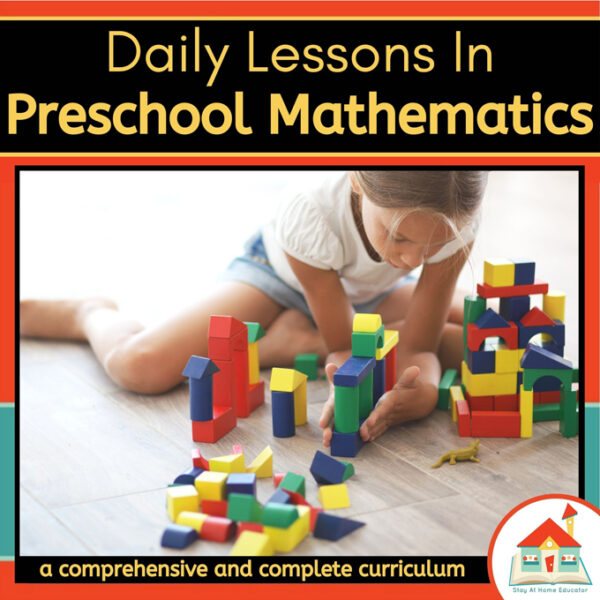 *** Daily Lessons in Preschool Mathematics CurriculumOriginal price was: $135.00.$99.00Current price is: $99.00.
*** Daily Lessons in Preschool Mathematics CurriculumOriginal price was: $135.00.$99.00Current price is: $99.00.
How Do You Teach Math to Preschoolers?
Teaching math to preschoolers may seem daunting, but it is fun. As preschoolers are naturally curious about the world, you can incorporate everyday activities into fun math adventures. Introducing math concepts through games, songs, and hands-on activities makes it engaging and developmentally appropriate for preschoolers.
The key is to use hands-on activities, relate math to everyday life, keep lessons interactive, and break concepts down into simple steps.
A sequential and systematic approach that includes all five disciplines of math (number sense, algebra, geometry, measurement, and data analysis) is crucial. Spiraling the math skills throughout the year is the best way to both introduce and systematically review concepts.
For preschool, there should be a strong emphasis on developing number sense skills and number identification and counting up to 20.
Preschool Math Goals
Math may seem like an advanced topic for little ones, but preschool is the perfect time to teach them. Children at this age are naturally curious and eager to learn, making them receptive to foundational math skills. These skills, like counting, recognizing shapes, and understanding patterns, pave the way for a strong math foundation that will benefit them throughout their schooling.
Instructional time for math in preschool should have varied approaches such as: whole group instruction, small group instruction, and one-on-one instruction. Preschoolers should be exploring math concepts through hands-on learning, inquiry and play.
In math it is especially important for skills to build upon one another and for skills to be reviewed in a spiraling manner like in my Daily Lessons in Preschool Math Curriculum.

Preschool Math Concepts
As mentioned above, there are FIVE disciplines in preschool math: number sense, algebra, geometry, measurement, and data analysis.
Here is a simple overview of each discipline:
- Number sense: counting, number identification, addition and subtraction
- Algebra: patterns, comparing and sorting
- Geometry: shape identification, shape differentiation
- Measurement: comparing sizes, lengths and weights
- Data Analysis: graphing, simple estimation
Preschool Math Skills
There are many important math skills for preschoolers to learn across the five disciplines. Check out the highlighted skills below and some great activities that you can use as part of your own preschool instruction.
Number Sense
Number sense is a HUGELY important skill area for preschoolers, with a lot of concepts packed in! I have rounded up some awesome, engaging activities for you in the areas of counting, number identification, adding and subtracting.
Counting
- 39 Hands-on Preschool Counting Activities
- Big List of Counting Activities for Preschoolers
- Easter Egg Ten Frame Counting Cards
- 15 Fun Counting Math Games for Preschoolers
Number Identification
- Number Identification and Color Recognition Game
- Summer Number Identification Practice
- 40+ Awesome Number Activities for Preschoolers
Addition/Subtraction
- Collecting Bugs Preschool Addition Game
- Addition and Subtraction Lesson Plans for Preschoolers
- 12 Hands-on Activities to Teach Addition
- Pre-K Playdough Subtraction Activities
Algebra
Algebra? Yes, Algebra…it’s not just for upper grades! Algebraic concepts are important to understand, even from a young age. In preschool, algebra takes the shape of patterns, comparing and sorting. Check out these algebra-based activities I have rounded up for you:
Patterns
Can your child create their own patterns with shapes, beads, blocks, or actions? Start with an AB pattern, then move to ABC and AABB patterns. Check out these activities to practice different patterns:
- Pattern Activities for Preschoolers
- Farm Animals Pattern Cards
- Positions and Patterns Lesson Plans for Preschoolers
- Awesome Pattern Activities for Preschoolers
Comparing and Sorting
- 20+ Clever Sorting Activities for Preschoolers
- Ultimate Guide to Comparing and Sorting
- Simple Sorting Activities for Preschoolers and Kindergarteners

Geometry
When it comes to Geometry in preschool, shapes are the name of the game! It is all about shape identification and differentiation. Preschoolers learn to identify shapes by their attributes. For example, a triangle has three sides and three corners. A rectangle has four sides and four corners.
Shape Identification and Differentiation
Measurement
Teaching measurement concepts in preschool allows children to compare and contrast different objects by length, size, weight, and other attributes. Measurement activities introduce ideas like bigger vs. smaller, longer vs. shorter, heavier vs lighter, and full vs empty.
Measurement activities for preschoolers are usually a favorite, as they are naturally hands-on, engaging and fun. I have gathered up some of my favorites for you.
Measurement Activities
- Comparing and Measuring Activities for Preschoolers
- Measuring Pumpkins
- Ice Cream Cone Measurement Cards
- Measurement Scavenger Hunt

Data Analysis
Data analysis sounds more like a grown-up career than a preschool math discipline. Don’t let the fancy wording throw you off. Data analysis in preschool is just basic graphing and simple estimation.
Preschool teachers can introduce simple picture and bar graphs in lots of meaningful ways:
- Graphing the weather each day
- Tallying favorite ice cream flavors
- Recording how many jumps each student can do
Here are some fun graphing and estimation activities for preschoolers:
Fun Graphing Activities
- Graphing Games for Preschool and Kindergarten
- It’s A Zoo! A Counting and Graphing Game for Preschoolers
- Penguin Graphing Game
- 12 Sorting and Graphing Books
Estimating Activities for Preschoolers
- Estimating and Measuring Pumpkin Activity
- Early Math Estimation Activities
- Estimation Games for Kids
If you are seeking ways to effectively and systematically teach all five major math disciplines, be sure to check out my Daily Lessons in Preschool Mathematics Curriculum. It is a complete and comprehensive year-long (40 weeks) math program. It has a full scope and sequence, but also allows flexibility in how you want to approach it.
It systematically works through all the crucial skill areas and spirals back around to constantly review concepts. It is the perfect resource to ensure that your preschoolers are getting everything they need from their math instruction. It takes all the guesswork out and makes planning and teaching a breeze!
-
Product on sale
 *** Daily Lessons in Preschool Mathematics CurriculumOriginal price was: $135.00.$99.00Current price is: $99.00.
*** Daily Lessons in Preschool Mathematics CurriculumOriginal price was: $135.00.$99.00Current price is: $99.00.
Preschool math skills establish an early foundation for math success as children grow. By teaching concepts like number sense, shapes, patterns, measurement, and data analysis – preschoolers develop critical thinking skills.
Focusing on these fundamental math skills through fun, hands-on activities with lots of repetition prepares young children for more complex math. Preschool math curriculum should aim to instill confidence and make learning math a fun journey.
Books About How to Teach Preschool Math
Look for math education books targeted specifically towards preschoolers. These books should focus on building a foundation in math concepts through play and exploration, rather than formal drills.
Good resources will emphasize hands-on activities that incorporate manipulatives and connect math to the real world. They should also address the developmental stages of preschoolers and provide age-appropriate teaching methods.
These are some of the resource books in my personal teaching library.
- Snow, Kate (Author)
- English (Publication Language)
- 104 Pages – 04/15/2016 (Publication Date) – The Well-Trained Mind Press (Publisher)
- Moomaw Ed.D., Sally (Author)
- English (Publication Language)
- 232 Pages – 03/02/2011 (Publication Date) – Brookes Publishing (Publisher)
- English (Publication Language)
- 112 Pages – 05/22/2015 (Publication Date) – The National Association for the Education of Young…
- Clements, Douglas H. (Author)
- English (Publication Language)
- 394 Pages – 04/14/2014 (Publication Date) – Routledge (Publisher)

I’m Sarah, an educator turned stay-at-home-mama of five! I’m the owner and creator of Stay At Home Educator, a website about intentional teaching and purposeful learning in the early childhood years. I’ve taught a range of levels, from preschool to college and a little bit of everything in between. Right now my focus is teaching my children and running a preschool from my home. Credentials include: Bachelors in Art, Masters in Curriculum and Instruction.
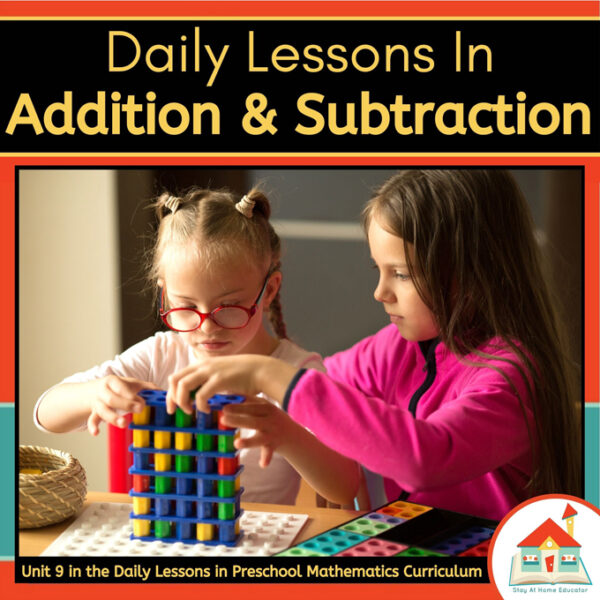
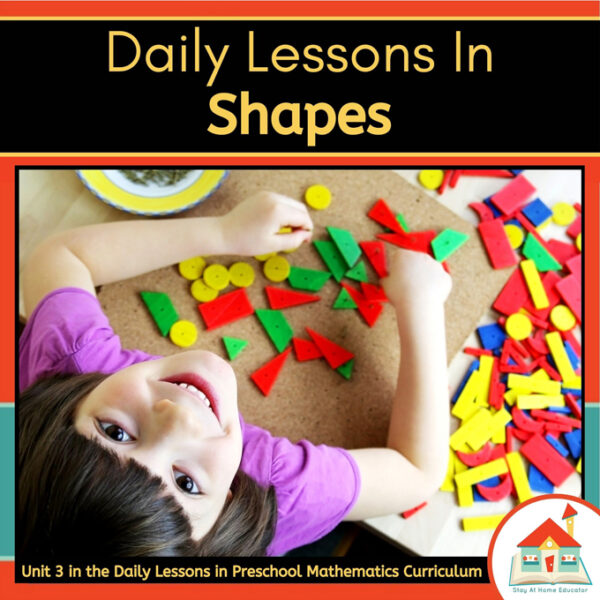


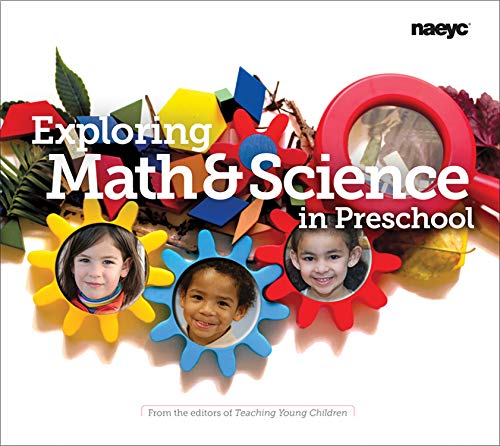
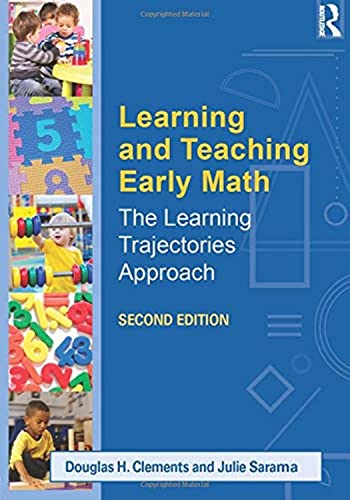





Leave a Reply